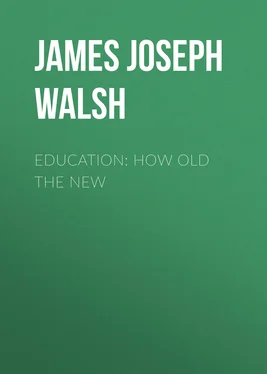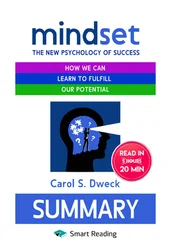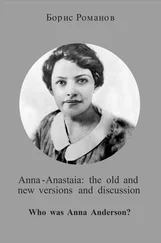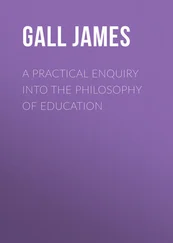James Walsh - Education - How Old The New
Здесь есть возможность читать онлайн «James Walsh - Education - How Old The New» — ознакомительный отрывок электронной книги совершенно бесплатно, а после прочтения отрывка купить полную версию. В некоторых случаях можно слушать аудио, скачать через торрент в формате fb2 и присутствует краткое содержание. Жанр: foreign_prose, foreign_edu, foreign_antique, на английском языке. Описание произведения, (предисловие) а так же отзывы посетителей доступны на портале библиотеки ЛибКат.
- Название:Education: How Old The New
- Автор:
- Жанр:
- Год:неизвестен
- ISBN:нет данных
- Рейтинг книги:3 / 5. Голосов: 1
-
Избранное:Добавить в избранное
- Отзывы:
-
Ваша оценка:
- 60
- 1
- 2
- 3
- 4
- 5
Education: How Old The New: краткое содержание, описание и аннотация
Предлагаем к чтению аннотацию, описание, краткое содержание или предисловие (зависит от того, что написал сам автор книги «Education: How Old The New»). Если вы не нашли необходимую информацию о книге — напишите в комментариях, мы постараемся отыскать её.
Education: How Old The New — читать онлайн ознакомительный отрывок
Ниже представлен текст книги, разбитый по страницам. Система сохранения места последней прочитанной страницы, позволяет с удобством читать онлайн бесплатно книгу «Education: How Old The New», без необходимости каждый раз заново искать на чём Вы остановились. Поставьте закладку, и сможете в любой момент перейти на страницу, на которой закончили чтение.
Интервал:
Закладка:
So much attention has been given to education in recent years, we have made such a prominent feature of it in life, have spent so much money on it, have devoted so much time and thought to its development and organization, that we feel very sure that what we are doing now in every line of educational effort represents–indeed must represent–a great advance over anything and everything that was ever accomplished in the past. To say anything else would seem to most people pure pessimism. It would mean that in spite of all the efforts of men we were not making advances. As a matter of fact, all of us know that it is quite possible to make heroic efforts so sadly misdirected that they accomplish nothing and get us nowhere. Progress depends not on effort but on the proper direction of the effort. We are supposed, however, to represent one phase and that at the front rank of an inevitable advance in things human, pushed forward, as it were, by the wheel of evolution in its ceaseless progress, and bound therefore to make advancement. It is with this idea, so commonly accepted, that I would take issue by showing how much was accomplished in the past that anticipates much of what we are occupied with at the present time, and that serves to show what men can accomplish at any time when they set themselves to doing things with high ideals, well-considered purpose and strenuous effort.
There are those who insist that unless men have the encouraging feeling that they are making progress, their efforts are likely to be less strenuous than would otherwise be the case. There are those who think apparently that compliments make the best incentive for successful effort. Some of us who know that the world's best work, or at least the work of many of the world's great men, has been done in the midst of opposition, in the very teeth of criticism, in spite of discouragement, may not agree with that opinion. The history of successful accomplishment seems to show, indeed, that incentive is all the stronger as the result of the opposition which arouses to renewed efforts and the criticism which strips whatever is new of errors that inevitably cling to it at the beginning. On the other hand, if there is anything that the lessons of history make clear it is that self-complacency is the very worst thing, above all for intellectual effort of any kind, and that criticism, when judicious, is always beneficial.
Above all, comparisons are likely to be chastening in their effects to make us realize that what we are doing at any particular time does not mean so much more than what many others have done and may indeed even mean less. It is rather interesting, then, to set our complacent assurance that we are doing such wonderful work in education and represent such magnificent progress over against some of the educational work of the past. After all we are not nearly so self-congratulatory about our education, its ways and methods and, above all, its success as we were a dozen years ago. There are many jarring notes of discordant criticism of methods heard, there are many deprecatory remarks passed with regard to our supposed success, and there have been some educators unkind enough,–and, unfortunately, they are often of the inner circle of our educational life,–to say that we are lacking in scholarship to a great degree, and that much of our so-called educational progress has been a tendency toward an accumulation of superficial information rather than a training of the intellect for power. The absolute need of the distinction between education for information and for power has been coming home to us. Above all, we have felt that we were not a little deceived by appearances in education and so are more ready to listen to suggestions of various kinds.
Under these circumstances it has seemed to me, that a calling of attention to what was accomplished at certain long-past periods for education, would not only be of interest as information for teachers, but might possibly be helpful or at least suggestive, in the midst of the somewhat disordered state of mind that has resulted from recent criticisms of our educational methods and success, by men whose interest in education cannot be doubted and whose opportunities for knowing are the best. For we are in a time when nearly every important educator, president of a university, dean of a department, old-time teacher or old, thoughtful pupil with the interest of Alma Mater at heart, who has had something to say with regard to education has said it in rather derogatory fashion. Perhaps, then, it will do us good to study the periods of the past and see what they did, how their methods differed or still more often were like our own, what their success was like and what we may learn from them. The surprising thing is the number of repetitions of present-day experiences in education that we shall find in the past. This is true, however, in every mode of thinking quite as well as in education, once careful investigation of conditions is made.
If we begin at the beginning and take what is sometimes called the oldest book in the world, we shall see how early definite educational ideas took form. It is a set of moral lessons or instructions given, or supposed to be given, by a father to his son. The father's name was Ptah Hotep. He was a vizier of King Itosi of the Fifth Dynasty in Egypt, some time about 3500 B.C. The Egyptologists used to date him earlier than that, but in recent years they have been clipping centuries off Egyptian dates until perhaps King Itosi must be considered as having lived probably not earlier than 3350 B.C. That makes very little difference for our purpose, however. The oldest manuscript copy of the book was written apparently not later than 2900 b.c. It exists as the famous Prisse Papyrus in the Bibliothèque Nationale in Paris. There is another copy in the British Museum. There is a pretty thorough agreement as to these dates, so that we can be sure that this little book which has come to be known as the Instruction of Ptah Hotep, or the Proverbs of Ptah Hotpu–another form of his name with a variation in the title–represents the wisdom of the generations who lived in Egypt about 5000 years ago. It was written, as I have said, almost as long before Solomon as Solomon is before us, so that the character of the moral instructions which it contains is extremely interesting.
There must have been a number of copies of it made. This and books like it were used as schoolbooks in Egypt. They were employed somewhat as we employ copybooks. The writing of the manuscript is the old hieratic, cursive writing of the Egyptians, not their hieroglyphics, and the children used portions of this book as copies, listened to dictation from it and learned to write the language by imitating it. Of books similar to it we have a number of manuscript copies. Some of these copies preserved from before 2000 B.C. are full of errors such as school children would make in taking down dictation. This was their method of teaching spelling, and after the children had spelled the words the teacher went over them and corrected the mistakes. These corrections were made in a different colored ink from that used by the pupils! The whole system of teaching, as it thus comes before us, resembles our own elementary school teaching much more than we might think possible. Spelling, writing, composition are all taught in this way yet, or at least they were when I was at school, and while I have heard that some of the old-fashioned methods were going out, I have also received some hints of the reaction by which they are coming in again, so that the Egyptian methods take on a new interest.
Perhaps there is no more interesting feature of the education of that olden time than the fact that these books which were used as copybooks in the school contain moral lessons. We have been neglecting these in our schools and have come to recognize the danger of such neglect. Definite efforts at the organization of moral teaching in some form are being made by many teachers, and their necessity is recognized by all educators. All of these old Egyptian books, then, will have a special claim on our interest at the present time. Above all, the oldest of them, though it is literally the oldest book in the world, merits our attention, because its moral teaching is very clear-cut and its emphasis on ethical precepts very pronounced.
Читать дальшеИнтервал:
Закладка:
Похожие книги на «Education: How Old The New»
Представляем Вашему вниманию похожие книги на «Education: How Old The New» списком для выбора. Мы отобрали схожую по названию и смыслу литературу в надежде предоставить читателям больше вариантов отыскать новые, интересные, ещё непрочитанные произведения.
Обсуждение, отзывы о книге «Education: How Old The New» и просто собственные мнения читателей. Оставьте ваши комментарии, напишите, что Вы думаете о произведении, его смысле или главных героях. Укажите что конкретно понравилось, а что нет, и почему Вы так считаете.












